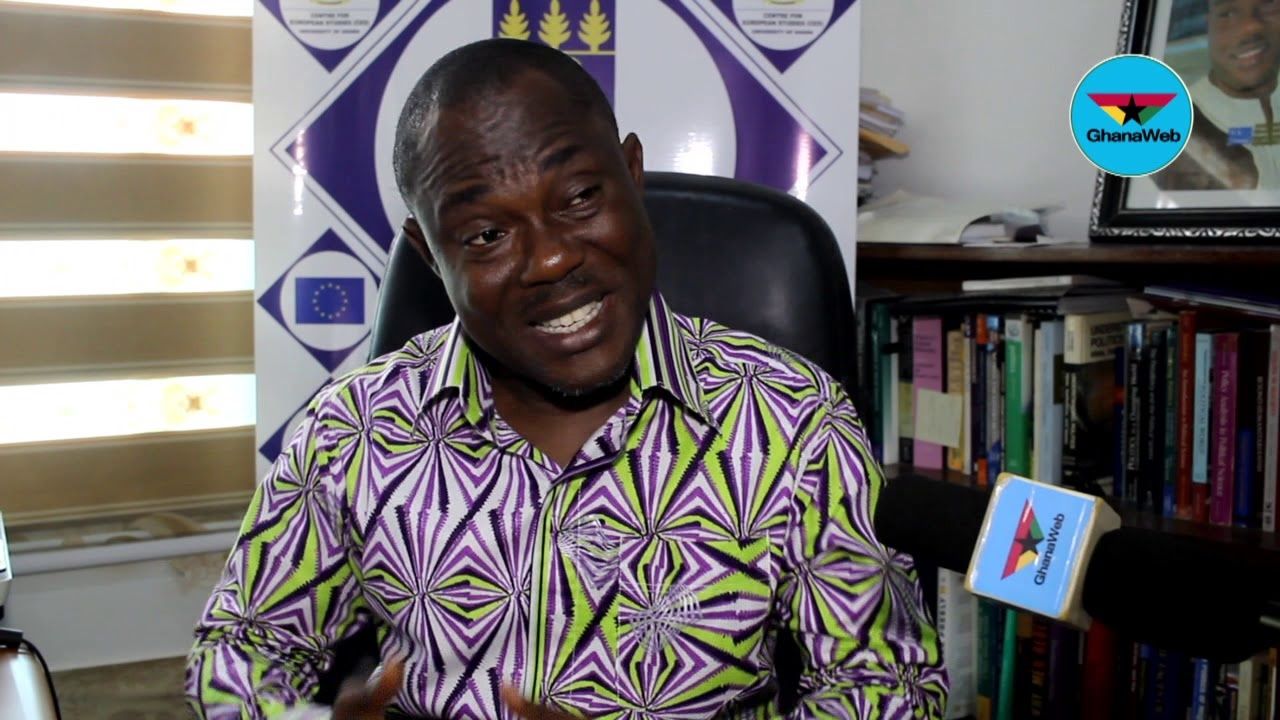#SexForGrades: Disgraced Ghanaian Professor Dismisses BBC Documentary as ‘Neocolonial’ Promises a Lawsuit
Professor Gyampo conducts a nine-minute interview stating his reaction to the allegations of his sexual misconduct.

A Ghanaian professor implicated in the #SexForGrades BBC exposé that came out yesterday, Professor Ransford Gyampo, had some words of his own regarding the story and his involvement. He spoke to the Ghana Web in a video interview that was almost as long as the initial BBC report. Among other things, he calls the report the "most bogus video documentary in the world so far" and eschews the involvement of the BBC as a form of colonialism. We break down the video for you, read on.
Gyampo first reminds that there were similar allegations to him in the past and that the accuser eventually came forward with a public apology. He then states that the BBC can "do their worst" and that the worst for him would be "to die" but that he is "prepared to die in the course of speaking truth and in the course of defending my conviction and in the course of keeping regimes on their toes."
He states that they BBC called the program "Sex for Grades" and criticizes that the video "contained nothing about sex for grades." He states that he will be suing the BBC and the interviewer asks then what happened in the video and Gyampo says" You watched it, she wasn't even my student. She wasn't even a student of the University of Ghana. They sent her to entrap me—I did not know until just now. We had conversations as friends." He says the BBC edited the reporter's side of the events to only show his behavior and not her part in it and that they were determined to show what they needed to show to make their point.
Gyampo then invokes the idea of colonialism as a potential reason for the BBC's reporting stating,
"If BBC is not neo-colonial in its portrait, then they should have a lot of respect for us as Africans and for us as Ghana as we have thrown away the yoke of colonialism long ago. We have our own internal mechanisms and systems for dealing with our own problems."
He says that if the BBC truly believed something "untoward" happened to one student, they should have encouraged the student to make a report and then report on the system in place. He questions why BBC did not report the sexual harassment to the police, as it is a crime. He believes this is done in order to undermine the institution as opposed to protect the girls.
When the interviewer asks if Gyampo feels there is a personal vendetta against him, he does not answer the question directly but states that people are not accepting his defense of other witnesses and Whatsapp messages. He states, "It is called 'Sex for Grades.' Don't we have eyes? Can't we see when people are having sex? And can't we see when a person's grade is being tampered with? And can't we see when someone is a student? That person is not my student. I have not had sex with her and I have not tampered with her grade." Gyampo suggests the BBC documentary could be a power move by a media conglomerate that can abuse resources to make the story they wish.
In the final bit of the video, the interviewer asks about a video that had been circulating on social media with many captions stating that Gyampo was crying from shame in a loud classroom following the release of the report. Gyampo states that he was "brought to tears" because the students were chanting his name and the support of his students touched him. He finishes the interview stating the BBC is "overly hyped" and people should tell them to their face.
Though the University of Ghana's Sexual Harassment Committee initially stated that "there was not enough evidence in the BBC video to back the sex for grades claim," the university has since released a press release stating that the two professors profiled in the report were being interdicted—meaning kept from doing their job but not officially punished or suspended—while they investigate.